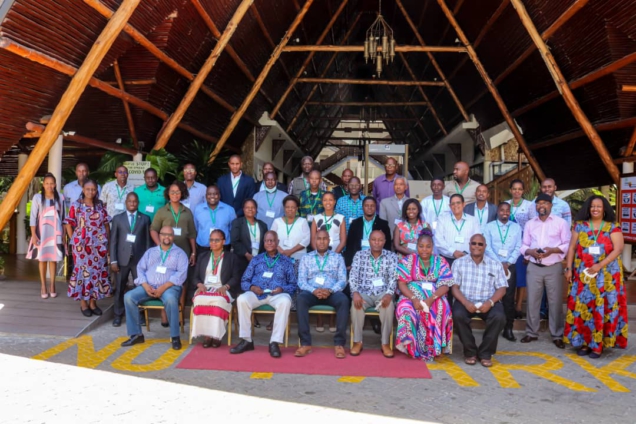Only a few countries in sub-Saharan Africa can meet their planting material requirements, let alone planting material, to take advantage of regional and global programs.
This is because most of the seed collected from natural stands and remnant trees scattered in farmlands is the main source of planting in many African countries, but there is clearly an insufficient supply of seeds from native species in these countries.
The Executive Secretary of the African Forest Forum, Professor Godwin Kowero, explained that tree seed markets are also limited to smallholder farmers, non-governmental organisations, private forestry companies, and national governments as key stakeholders in the production of seeds and seedlings as well as selling excess germplasm for tree planting.
Germplasm is a seed, plant, or part of a plant used in crop selection, research, and conservation efforts. Plants, seeds, or cultures are germplasm when kept for the purposes of studying, managing, or using the genetic information they possess. Its maintenance involves seed germination testing and viability monitoring. Germplasm samples for storage are multiplied mainly during the post-rainy season to obtain better quality seeds.
Seed stored in a genebank becomes progressively less viable during storage. The gene bank tests the viability of fresh germplasm sample seeds and monitors seed viability at regular intervals based on initial viability, storage type, and cultivation.
These periods vary between eight and 25 years for active collection and 10 to 30 years for basic collection.
Lack of trained staff and lab facilities in many countries, according to Prof Kowero affects the genetic improvement of trees.
"Further, there is a widespread lack of trained personnel and laboratory facilities in many countries leading to inadequate attention being given to the genetic improvement of trees.''
Prof. Kowero also deplores the lack of a quality control system for the production of genetics to distinguish improved seeds from wild seeds.
According to him, many countries have cut investment in forestry research and development in the breeding and deployment of trees, causing the use of low-quality tree germplasm for planting as well as the minimal operation or even closure of national tree seed centres.
"It is, therefore, critical importance that Africa secures the production, distribution, and use of quality germplasm of known origin to safeguard the development of a successful forestry sector," he said.
He indicates that inappropriate germplasm will jeopardise the whole forestry industry.
Prof Kowero was speaking at a regional workshop on sharing of information and experiences in Mombasa, Kenya on a theme, “Sharing Information and Experiences on Challenges and Opportunities in Forest Management for Sustainable Development in Africa in the Context of Climate Change.”
Latest Stories
-
Photos from DW-JoyNews street debate on ‘galamsey’
23 mins -
Mimmy Yeboah: Blending heritage with global sophistication, confidence redefined through couture
37 mins -
Akufo-Addo commissions 97-km Tema-Mpakadan railway line
1 hour -
Majority requests recall of Parliament
1 hour -
Kanzlsperger and Professor Quartey support WAFA with medical Donation
1 hour -
Gideon Boako donates 10 industrial sewing machines to Yamfo Technical Institute
2 hours -
‘Golden Boy’ Abdul Karim Razak honored at WAFU-B general assembly
2 hours -
Buipewura Jinapor secures Vice Presidential position in National House of Chiefs with record votes
2 hours -
2024 election: I want results to come out like ‘milk and honey’ – Toobu
2 hours -
Ghana’s Henry Bukari hands over chairmanship of ECOWAS Brown Card Council of Bureaux
2 hours -
Residents of Dome-Kwabenya on edge ahead of December elections
3 hours -
Moffy drops new single ‘Wo’, blending culture and modernity
3 hours -
Don’t bring soldiers to polling stations – Martin Kpebu
3 hours -
Ogyeahohuo Yaw Gyebi II retained as President of National House of Chiefs
3 hours -
Embrace ICT to fit in digital world – Ho NYA boss to youth
4 hours

